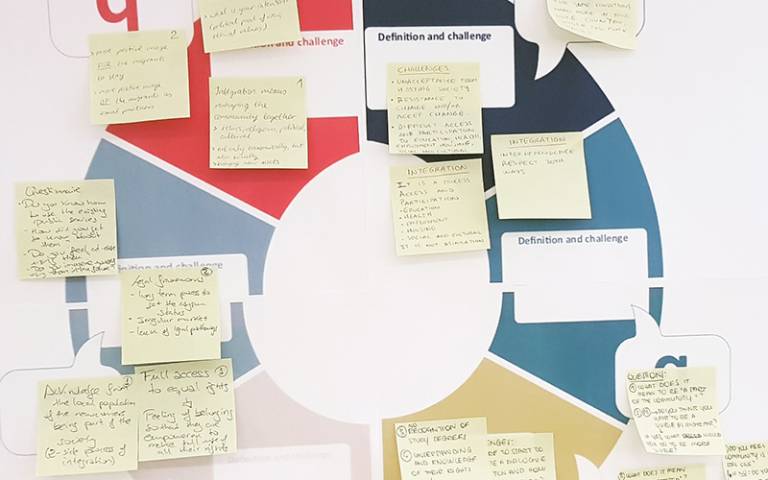DPU's Giovanna Astolfo presents research at international workshop on Asylum and migration
3 February 2020
The research aims to explore the diversity of responses to migration across eight European urban spaces and the different strategies put in place by migrants to navigate and learn the city.

As part of the three-year project "EPIC", funded by the Asylum, Migration and Integration fund, last week DPU' s Giovanna Astolfo was in Vicenza, Italy, for the Project Kickstart Workshop. The research examines practices of integration in eight European territories, from the metropolitan area of Lisbon to the port city of Gdanks, and from the postindustrial city of Oberhausen to the island of Sardinia. Exploring the diversity of responses to migration across these European urban spaces and the different strategies put in place by migrants to navigate and learn the city, the research wishes to reframe integration away from current dominant paradigms, and instead conceptualize it as a relational, embedded practice.
To achieve its objective, the project has been designed to establish an international environment for building knowledge and exchange good practices. Particularly, the project identifies and comparatively analyses under-recognized and under-valued practices in small and large cities. For each case the work package led by DPU will build case ‘biographies’ to understand the complex entanglements and assess the practices and effects of migration and integration on people, places and institutions – amidst improvisation, precarity, alternative scripts of citizenship and how state rules are negotiated. Rather than simply collecting and comparing practices, successful or not, across different geographies, the project sees such modes of practice rooted in space and time, and will look, listen and pay attention to the current instantiations of practice and their relationship to place.
The project will select and reflect onto a number of practices that are under-valued precisely because of their distance from formal sectors and domains of professional practice, and the mainstream media. These exchanges will constitute the foundation of a capacity building effort that will target local institutions, civil society and migrant organisations through training and job shadowing. The knowledge gained through the platform will be translated into action through a series of pilot projects.
 Close
Close

